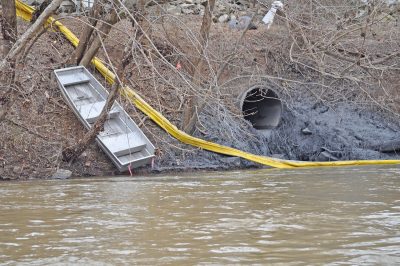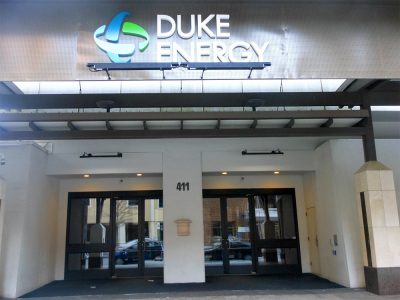Front Porch Blog
This op-ed was originally published Nov. 28, 2017 in the Raleigh News & Observer.
Duke Energy is back in the headlines for misdeeds over coal ash. Fortunately, it’s not because thousands of tons of toxic sludge have poured into one of our rivers, or because more families living near the company’s unlined coal ash ponds have discovered that their well water is contaminated. This time, Duke has come under fire for allegedly using its influence to slant so-called independent scientific reports in its favor.
The details were revealed last week in an exposé by WBTV suggesting that UNC Charlotte scientists hired by Duke changed their wording at Duke’s bidding in reports sent to the N.C. Department of Environmental Quality. Duke tried to dismiss the story and claimed that “this is how science is supposed to work.” As a state water quality regulator for nearly 10 years, I can tell you, this is not how science is supposed to work. State and federal laws require agencies to rely on independent scientific review for every rule and standard they write. If a regulated polluter like Duke secretly edits the findings of “independent” scientists, then those findings aren’t independent after all.
But maybe we should stop finding these things shocking. Duke is, after all, a notorious corporate polluter on federal probation after pleading guilty to systemic violations of the Clean Water Act. Last year, two major shareholders dropped Duke holdings based on its environmental record and the likelihood of future wrongdoing. Earlier this year, nearly two dozen insurance companies refused to pay out on Duke’s coal ash claims citing willful environmental negligence.
Maybe we should stop expecting corporations to do the right thing by putting the health and welfare of their customers and neighbors first. They are self-serving by design and addicted to producing ever-higher financial yields for their shareholders. To this day, Duke continues to act in accordance with the corporate principles that brought us the Dan River spill.
This does not bode well for North Carolinians in the path of the proposed pipeline. Duke has teamed up with Dominion Energy, Virginia’s largest utility and one with a similarly poor environmental record, to build a massive pipeline through West Virginia, Virginia and North Carolina. The proposed Atlantic Coast Pipeline would transport fracked gas across about 560 waters located in eight mostly rural and low-income North Carolina counties, including predominately African-American and Native American communities.
Duke and Dominion care about lining their pockets, and like modern-day snake oil salesmen, they bottle up toxic, dangerous projects, stick on labels full of fibs and false hopes, and proceed to slick talk our decision-makers into ignoring the true hazards lurking in their elixir. Ultimately, it’s we the people who are left to drink and breathe the poison.

When a Duke Energy coal ash pond failed in 2014, waste entered the Dan River through this pipe. Photo by Appalachian Voices
From coal ash to pipelines, the bad science Duke is peddling is bad for North Carolina. Based on its filings with the Federal Energy Regulatory Commission, Duke would have us believe the pipeline is economically sound, transports “clean” natural gas, and poses no threat to North Carolina’s water resources and communities. In hawking this project to the public, Duke doesn’t mention the guaranteed 14 percent no-questions-asked profit margin it will pocket.
In fact, the pipeline is not needed and will ultimately drive prices up for Duke customers. Moreover, greenhouse gas emissions from the pipeline would be the equivalent of 20 coal-fired power plants (not to mention the tremendous “upstream” impacts in Appalachian communities where fracking will increase).
Not even the DEQ is buying the Duke’s claims about protecting our water resources; the agency has required Duke to provide additional information on its permit applications multiple times. That is an encouraging note, as is the N.C. Utilities Commission’s request that FERC reconsider its decision to certify the Atlantic Coast Pipeline based on the project’s “overstated” profit margins.
But more is needed. It is time for our state’s elected leaders and public servants to tell Duke once and for all to clean out all its leaky coal ash basins. It is time to tell Duke and its pipeline partners that the Atlantic Coast Pipeline is much too great a risk to our waters, health and the future of North Carolina. In Gov. Cooper’s first year in office, his administration faces decisions that will determine its environmental legacy. Will it be duped by these corporate charlatans or stand strong against them?
Amy Adams is North Carolina program manager with the nonprofit organization Appalachian Voices. She is a former regional office supervisor for North Carolina’s Department of Environment and Natural Resources.
PREVIOUS
NEXT
Related News

Leave a comment
Your email address will not be published. Required fields are marked *


Please crack down on Duke Energy’s hazards.